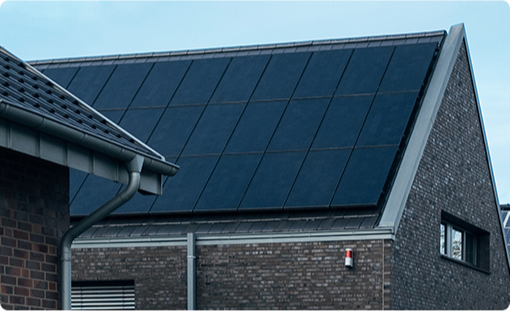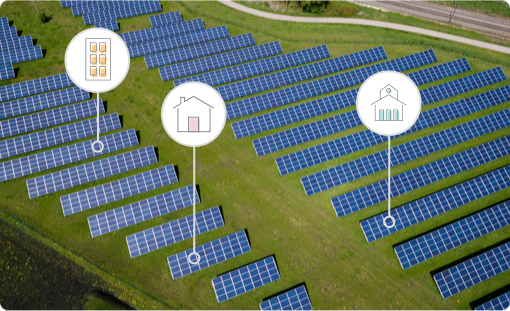


Explore your solar options and save
Go solar with EnergySage at your business or home to earn real financial savings for your bottom line and get cash back!
Take the quiz to find the right solar option for you.
Let's Go!Benefits of Solar
Financial Savings
If you spend $100 on your electricity bill today, that means you’ll spend over $60,000 on electricity over the next 30 years! With solar, you can avoid that cost, as well as any future electricity rate increases, by offsetting your bill with solar power produced on-site, leading to significant financial savings over the lifetime of the panels.
Environmental Benefits
Most people start looking into solar for the environmental benefit. Solar power is a form of clean, emission-free renewable energy that can offset or replace your need to purchase electricity generated from burning fossil fuels. In fact, switching from fossil fuels to solar has the same emissions reduction effect as planting about 150 trees every single year for the average homeowner.

How EnergySage works

On EnergySage, you are in control of your solar buying experience. That means a better experience all around–personalized support without the unwanted phone calls. We provide a 100% online platform that allows you to receive and compare multiple solar quotes first, and then decide which installer is right for you. Think of us as your unbiased solar matchmaker, connecting you with the best pre-screened solar installers in your area.
Our mission is to empower people to make smarter energy decisions, through simplicity, transparency, and choice.Intuit Climate Action Marketplace
The Intuit Climate Action Marketplace is core to Intuit’s climate positive goal to reduce 2 million metric tonnes of carbon from the atmosphere by 2030, 50 times its 2018 operational footprint. We’re proud to work together with Intuit to contribute to this bold goal and a more sustainable future.

How rooftop solar works
Saving with solar is simple:
- Solar panels capture sunlight and convert it into direct current electricity. Inverters turn the direct current electricity into usable alternating current electricity to use in your home or business.
- When your solar panels produce more electricity than you are using, the excess is sent back to your utility in exchange for credits. When you use more than your solar panels produce, you’ll pull from your utility using those credits you’ve already banked.
- At the end of the month, you receive a bill based on the net of your solar production and your electricity usage. In most cases, solar will offset most or all of your monthly electricity bill.
- Solar panels last for 25 years or more, meaning you’ll have decades worth of clean electricity at your home or business, protecting you from future increases in electricity costs.

How community solar works

With community solar, you can subscribe to a share of a solar farm with no upfront cost and still save money over time! Whether you rent or own your property, if you have an electric bill, you can support local emission-free solar power without installing any equipment or signing long-term contracts. Spots are limited, so claim your share today.
FAQs
Commercial
Nonprofit
Residential
Instantly see how much you can save with solar Estimate Your Savings
*When Intuit customers go solar with EnergySage, you'll save on solar and get $100-$10,000 cash. Amount of cash back is based on the size of the system. For example, you will receive $100 or $10,000 for installing a 5 kW or a 1,000 kW solar PV system, respectively ($20 / kW for systems under 100 kW and $10 / kW for systems 100 kW or over). This promotion is exclusive to Intuit.